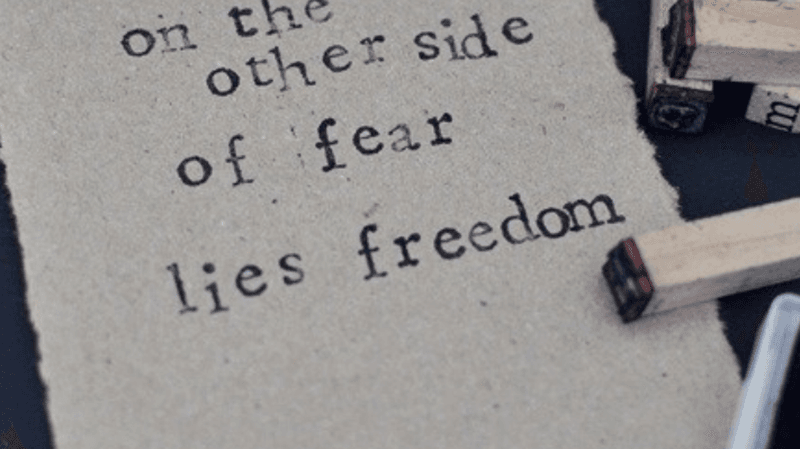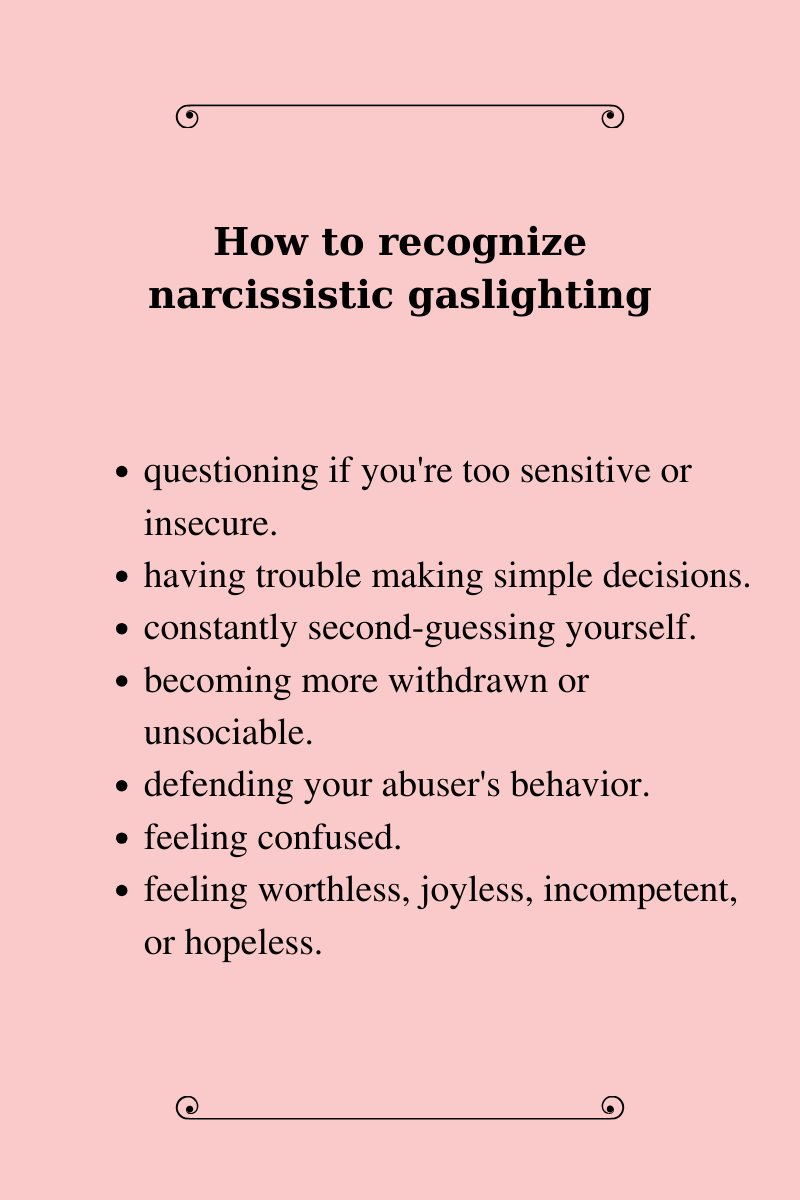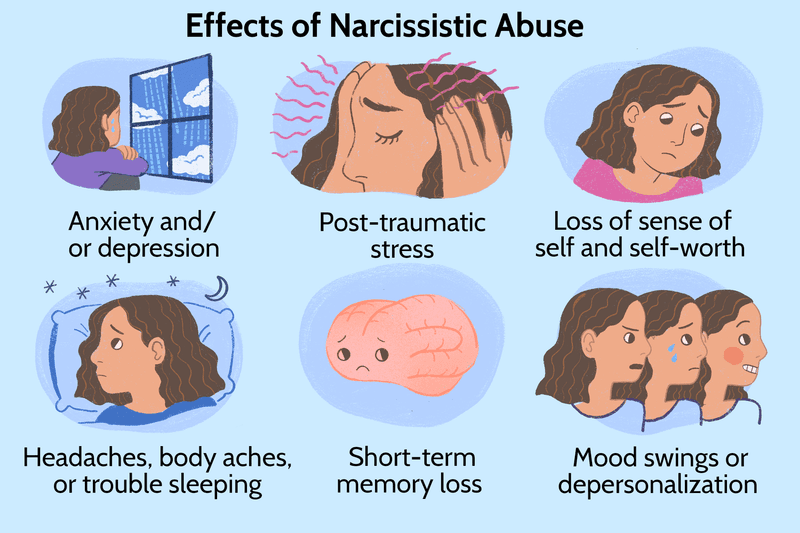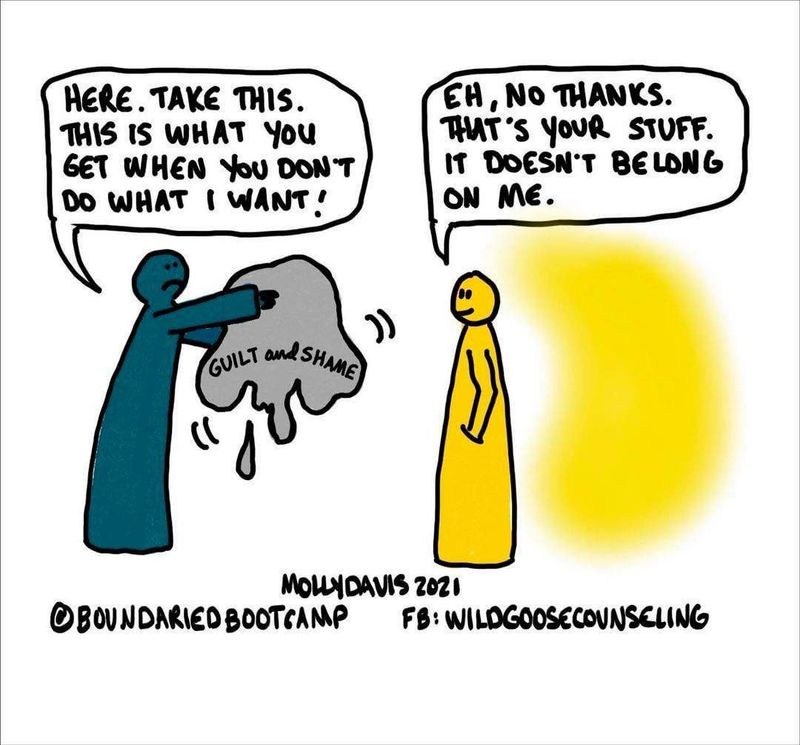17 Things Only People Who Escaped A Narcissist Will Understand
Leaving a narcissistic relationship is an emotional rollercoaster filled with moments of relief, fear, and profound transformation. For those who have experienced it, the journey toward healing is deeply personal and validating.
This listicle explores 17 unique experiences and revelations that only those who have escaped a narcissist will truly understand. From the relief of no longer walking on eggshells to finally sleeping peacefully through the night, each item sheds light on the extraordinary journey of recovery and self-discovery.
1. The relief of no longer walking on eggshells

Imagine standing in a field, feeling the breeze on your face, without the weight of constant vigilance. Escaping a narcissistic relationship often feels like this. The constant tension, the fear of unexpected eruptions, dissipates. You find yourself breathing deeply, enjoying the freedom of not having to second guess every word or action.
Suddenly, life gains a new texture, filled with genuine peace. The absence of manipulation and control opens up a space where you can finally be yourself. The relief is profound; it’s like coming up for air after being underwater too long.
Embracing this newfound peace becomes an integral part of healing, a step towards reclaiming your life and your authentic self.
2. Realizing love shouldn’t feel like survival

In the aftermath, you often realize that love shouldn’t feel like a battle for survival. True love is nurturing, where safety is a given, not a luxury. People who have lived through narcissistic relationships find themselves reflecting on this stark difference.
No longer needing to guard your heart at every turn is liberating. The journey from survival to thriving is a testament to your resilience. Rediscovering love that supports rather than drains is one of life’s greatest gifts.
Understanding that love can be gentle and kind, rather than a cycle of highs and lows, is a revelation. It’s where healing begins, with love that uplifts and nourishes your spirit.
3. Discovering how deep the manipulation ran

Peeling back the layers of manipulation is akin to solving a complex puzzle. You begin to see how deeply embedded the control was in every aspect of life. The realization that many of your decisions were subtly directed by someone else’s agenda is both shocking and enlightening.
This discovery is essential, albeit painful. It’s the foundation upon which you build a new understanding of yourself. Recognizing manipulation allows you to reclaim autonomy.
Embracing this newfound clarity is critical for moving forward. It provides the strength to establish boundaries and choose paths that align with your true self, free from external control.
4. Learning to trust your own memory again

In the shadows of a narcissistic relationship, your memory is often questioned, warped by gaslighting. The journey back to trusting your own recollections is monumental. Rebuilding this trust is both freeing and empowering.
As you begin to validate your own experiences, the fog lifts. Your memories, once clouded by doubt, start to piece back together, forming a coherent narrative. This act of trusting yourself again is an act of reclaiming power.
Writing and reflecting help in this recovery process. It’s about piecing together your reality, independent of external influence, and embracing your truth with confidence and clarity.
5. Feeling both free and terrified at the same time

Freedom from a narcissistic relationship can feel like standing on a cliff edge. There’s exhilaration in the open space, yet fear lingers beneath the surface. This duality of emotions is a hallmark of the healing journey.
With freedom comes the fear of the unknown. You’re no longer tethered to someone else’s whims, but the vastness of choice can be overwhelming. This mix of emotions is both daunting and liberating.
Navigating this path requires courage. It’s about embracing the fear and using it as a catalyst for growth, allowing you to step boldly into the life you choose.
6. Recognizing gaslighting in hindsight

In hindsight, gaslighting becomes evident. The moments you doubted your sanity, the times explanations didn’t quite add up, now make sense. Recognizing these manipulations is both enlightening and painful.
Understanding this tactic is crucial for healing. It validates your experiences and emotions, asserting they were real and not figments of imagination.
This recognition is a powerful tool. It gives you the clarity to differentiate between manipulation and reality, empowering you to trust yourself and your perceptions again.
7. Rebuilding friendships you were isolated from

Isolation is a common tool used by narcissists to maintain control. Rebuilding lost friendships is like finding pieces of yourself you didn’t know were missing. These reconnections are both healing and fulfilling.
As you reach out, the warmth of familiar bonds revives a neglected part of your soul. These friendships become a reminder of who you are outside the constraints of a toxic relationship.
This process is not just about socializing; it’s about rediscovering your value and place in the world. Friends provide a mirror to your true self, one that reflects love and acceptance.
8. Overcoming guilt for putting yourself first

Narcissistic relationships often instill guilt for prioritizing yourself. Overcoming this guilt is a journey of self-embrace. It means acknowledging that self-care is not selfish; it’s essential.
Practicing self-love and prioritizing your needs require courage and resilience. It’s about learning that putting yourself first is a strength, not a flaw. This realization is a significant step in healing.
Embracing self-worth and understanding that you deserve care and respect is transformative. It allows you to navigate life with confidence and compassion, for yourself and others.
9. Rediscovering hobbies you weren’t “allowed” to enjoy

Reclaiming old hobbies feels like meeting an old friend. In a narcissistic relationship, your joys are often stifled. Rediscovering these passions is liberating and rejuvenating.
Engaging in activities you love rekindles your spirit and brings joy back into your life. It’s a journey back to yourself, where each brush stroke, note, or step is a celebration of freedom.
This rediscovery is about more than hobbies; it’s about reclaiming parts of yourself that were lost. It’s a testament to resilience and the enduring spirit of creativity and joy.
10. Healing your self-esteem from years of subtle jabs

Self-esteem takes a beating in a narcissistic relationship. The subtle jabs and criticisms chip away at your confidence. Healing from this requires patience and self-compassion.
Rebuilding self-esteem is like piecing together a shattered mirror. Each act of kindness towards yourself is a piece of the puzzle, restoring your reflection one step at a time.
This process is deeply personal and empowering. It involves celebrating small victories and acknowledging your worth, independent of anyone else’s perceptions.
11. Struggling to stop apologizing all the time

Apologizing becomes second nature in a narcissistic relationship. Breaking this habit is a significant part of the healing process. It requires recognizing that not everything is your fault.
Learning to stand by your actions without unnecessary guilt is empowering. It’s about understanding that your needs and boundaries are valid and deserve respect.
This struggle is a path to self-assertion. Each moment you resist the urge to apologize unnecessarily is a step toward reclaiming your voice and confidence.
12. Noticing how calm life feels without drama

Life after a narcissistic relationship feels remarkably calm. The absence of constant drama and tension opens up a world of peace and tranquility.
This newfound calmness allows you to focus on what truly matters. It’s a space where growth and happiness can flourish without the weight of constant conflict.
Embracing this calm is a significant milestone. It’s a reminder that stability and peace are achievable and that you deserve a life free from chaos and manipulation.
13. Setting boundaries without fear for the first time

Setting boundaries is a revolutionary act for someone who’s escaped a narcissist. The fear of retribution fades, replaced by the realization of your strength.
Boundaries become a source of empowerment. They protect your well-being and establish respect. This process is both challenging and liberating.
Each boundary you set is a testament to your growth. It’s a declaration that your needs and values matter and deserve to be honored.
14. Mourning the person you thought they were

Mourning is a complex emotion post-escape. You grieve the person you thought they were, the image they projected that never really existed.
This mourning is necessary. It’s a process of letting go of illusions and embracing reality. It’s part of moving forward, acknowledging the past but not letting it define your future.
Processing this grief is a personal journey. It’s about accepting the truth and allowing yourself to heal, free from the shadows of false perceptions.
15. Appreciating small acts of kindness deeply now

Small acts of kindness take on new significance after a narcissistic relationship. Each gesture, no matter how small, is a reminder of genuine human connection.
Appreciation becomes a daily practice. You find joy in simple interactions, allowing them to fill the void left by past toxicity.
This newfound appreciation enriches your life. It teaches you to value authenticity and kindness, enhancing your relationships and personal well-being.
16. Finally sleeping peacefully through the night

Peaceful sleep is a cherished gift after leaving a narcissist. The absence of nightly turmoil and anxiety allows for rest and rejuvenation.
Each night of uninterrupted sleep restores your body and mind. It’s a sign of healing, a return to normalcy that eluded you for so long.
Cherishing these nights becomes part of your recovery journey. It symbolizes the end of chaos and the beginning of peace and stability.
17. Understanding why you stayed as long as you did

Reflecting on why you stayed reveals layers of complexity. Understanding these reasons is a vital part of healing, offering insights into your resilience and survival.
You realize that love, hope, and the fear of change played roles. This understanding is not about self-blame but about compassion and acknowledgment of your journey.
This insight allows for closure. It’s about accepting your past choices and using them as stepping stones towards a healthier future.







